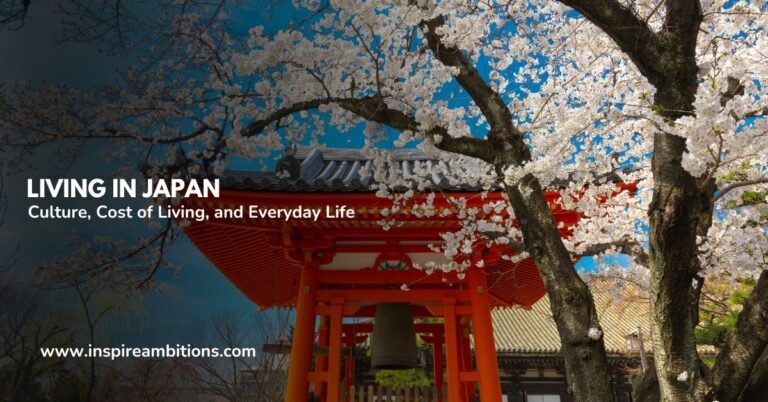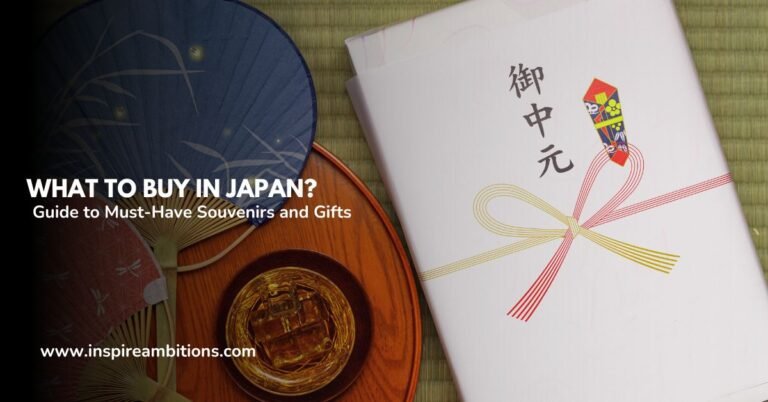What to Wear in Japan – A Guide to Dressing Appropriately for Your Trip
When planning a trip to Japan, one crucial factor to consider is what to wear. Japan has a unique culture and climate that may differ from what you’re used to, so it’s essential to dress appropriately for the occasion.
Whether you’re visiting Tokyo, Kyoto, or any other part of the country, knowing what to wear can help you feel comfortable and confident during your travels.
Here are some tips to help you dress appropriately for your trip to Japan:
- Dress modestly: Japan is a conservative country, so it’s essential to dress modestly, especially when visiting temples or other religious sites. Avoid wearing revealing clothing or anything that shows too much skin.
- Consider the weather: Japan experiences four distinct seasons, so it’s important to pack accordingly. During the summer months, lightweight and breathable clothing is recommended, while in the winter, warm layers are a must.
- Embrace Japanese fashion: Japan is known for its unique fashion sense, so don’t be afraid to embrace it! Neutral colours, clean lines, and understated accessories are popular among locals.
By following these tips, you can ensure that you’re dressed appropriately for your trip to Japan. Whether you’re exploring the city or visiting a temple, you’ll feel comfortable and confident in your attire.
Seasonal Attire Recommendations
When planning a trip to Japan, it is vital to consider the seasonal weather and pack accordingly. Japan experiences four distinct seasons, each with its own unique climate and weather patterns.
In this section, we will provide you with seasonal attire recommendations to help you prepare for your trip.
Spring and Cherry Blossom Season
Spring is one of the most popular times to visit Japan due to the beautiful cherry blossom season. The weather during this time is mild, with temperatures ranging from 10°C to 20°C. It is recommended to pack light layers such as a light jacket, sweater, or cardigan.
Comfortable shoes are a must, as there will be a lot of walking involved. Don’t forget to bring an umbrella as well, as there may be occasional rain showers.
Summer and Rainy Season
Summer in Japan is hot and humid, with temperatures ranging from 25°C to 35°C. It is essential to pack breathable fabrics such as cotton and avoid heavy materials like denim. Don’t forget to bring sunscreen, a hat, and sunglasses to protect yourself from the sun.
It is also the rainy season, so it is recommended to get a rain jacket or umbrella. Sandals and a tank top are also great options to beat the heat.
Autumn and Falling Temperatures
Autumn in Japan is a beautiful time to visit, with temperatures ranging from 10°C to 20°C. It is recommended to pack a light coat or jacket, scarf, and comfortable boots.
Jeans, a sweater, or a cardigan are great options to layer with. It is essential to check the weather forecast before packing, as temperatures can vary depending on the region.
Winter and Snow Preparations
Winter in Japan can be pretty cold, with temperatures ranging from 0°C to 10°C. It is important to pack warm clothing such as a coat, gloves, and thermals. Comfortable boots are also a must, as there may be snow and ice on the ground.
Layering is essential, so don’t forget to pack a sweater or cardigan as well. It is necessary to check the weather forecast before packing, as temperatures can vary depending on the region.
Para concluir, packing for a trip to Japan requires careful consideration of the seasonal weather patterns. By following our seasonal attire recommendations, you can ensure that you are prepared for any weather conditions you may encounter during your trip.
Cultural Considerations and Dress Codes
When it comes to what to wear in Japan, it’s essential to be mindful of cultural considerations and dress codes. Japan is a country with a strong emphasis on tradition and cultural respect, which is reflected in its dress codes.
Here are some tips to help you navigate the dress codes in Japan.
Appropriate Attire for Shrines and Temples
When visiting religious sites such as shrines and temples, it’s important to dress conservatively and respectfully. This means avoiding revealing clothing, such as low necklines and tight clothes. Shorts are generally not recommended, but if you must wear them, choose a loose-fitting pair that is not too short.
A loose-fitting, knee-length dress is also a suitable option. Additionally, it’s customary to remove your shoes before entering the shrine or temple, so it’s a good idea to wear comfortable shoes that are easy to take off and put on.
Urban Fashion and Business Etiquette
In urban areas such as Tokyo, you’ll see a wide range of fashion styles, from traditional to quirky and colourful. When it comes to business attire, however, it’s best to err on the side of conservative and neat. Men should wear a suit and tie, while women should wear a business suit or a dress that covers the knees.
It’s also important to remove your shoes when entering traditional restaurants, so be sure to wear socks that match your outfit.
Local Customs and Practical Tips
When packing for your trip to Japan, consider bringing a raincoat or umbrella, especially if you’re visiting during the rainy season. Sweatshirts or lightweight jackets are also useful for layering, as temperatures can vary depending on the season and location.
If you plan on visiting multiple cities, consider getting a Japan Rail Pass to save money on transportation. Additionally, it’s a good idea to bring a backpack or suitcase that’s easy to carry around, as you’ll likely be using public transportation.
When it comes to local customs, it’s important to be respectful of Japanese culture. For example, tattoos are often associated with organized crime in Japan, so it’s best to cover them up when in public. If you’re interested in trying traditional Japanese clothing, such as a yukata, there are many shops where you can rent them.
Finally, be sure to bring a travel adapter if you plan on using electronic devices, as the outlets in Japan are different from those in other countries.
Overall, dressing appropriately in Japan is all about being respectful of local customs and traditions. By following these tips, you’ll be able to enjoy your trip to Japan while feeling comfortable and confident in your attire.






